Every musician, producer, and audio engineer must be familiar with audio mixers of some kind. This piece of gear is crucial for live situations, for recording, and even for mixing and mastering. Whether you use all digital gear or you prefer the world of analog equipment, understanding mixers, what they do, and how they are used is crucial.
Mixers act as a hub for audio signals that allows multiple signals to be input to one place and send out from multiple sends. Mixers process audio to balance signals, alter frequency outputs, and even add effects to audio. Mixers are infinitely useful for anyone dealing with pro audio.
Every mixer is different and has different features, but every mixer performs the same basic functions and can be used in the same fundamental way.
However, the world of modern mixers is varied, vast, and advanced, so understanding how useful and versatile a modern mixer can be is important for anyone who is involved with any kind of audio creation or production.
Let’s get started.
What Do Audio Mixers Do?
Audio mixers (also known as mixing desks, mixing consoles, and audio consoles) are a core area of music and audio production, live performances, recording, and even live situations such as streaming or recording podcasts.
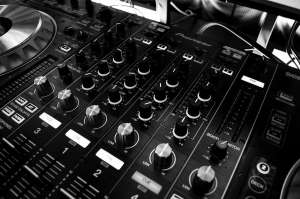
If you are unfamiliar with this hardware, it is important to know what mixers do before we can truly understand how useful this equipment is.
At the core of it, a mixer is a hub that allows multiple sound sources to be brought into one piece of hardware and sent out to multiple different outputs. Along the way, a mixer is used to adjust audio, signal, and effect levels, mixing them to an even and good-sounding output. This is why they are called mixers.
Mixers literally mix the audio from various sound sources into a combined sound that is well-balanced, clearly audible, and pleasant to listen to. This is true for both live performances or other live situations and recording purposes as well.
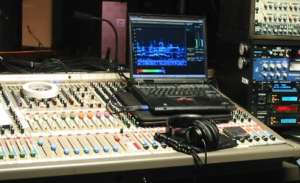
Very basic mixers are used to simply input sound sources such as instruments and microphones and output them to speakers or recording interfaces, but there are modern versions of audio mixers that have a great many more features than these basic functions.
Mixers come in various shapes and sizes, as well as various levels of functionality and price ranges. There are very small mixers that only accommodate four audio channels or less, and there are very large mixers that can provide input, output, and actively process dozens of audio input channels simultaneously.
Which mixer is used depends entirely on the situation. There is no need to use a large, powerful mixer for recording one instrument and one vocal for a home studio recording, but a large, powerful mixer is ideal for a large, live music production such as a successful band.

As a basic definition, mixers receive audio signals from multiple sources, mix them into a harmonious sound, and output them to whatever sources are necessary for the situation.
This is the basic definition of a mixer, but modern mixing consoles are so much more useful than this simple function.
What Makes Audio Mixers So Useful?
We have now defined what audio mixers are by identifying their main use, but modern mixers are useful for so many more reasons than being a simple audio hub.
Modern mixers with digital controls and capabilities have been transformed from simple audio inputs and outputs into powerful devices that are capable of controlling almost every aspect of multiple audio signals simultaneously while also adding effects and even recording in some cases.
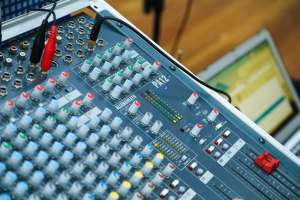
(You can learn about which mixers have the best effects here).
Audio mixers receive input from any sound source, including instruments, microphones, audio devices, and even direct-input boxes and stage boxes. A mixer can then boost the signal, manipulate the signal, remove frequencies, balance frequencies, improve audio quality, provide electrical power, and add audio effects to any signal that it receives.
A mixer is useful in this way because every signal that comes into the mixer can be easily sent to wherever it needs to be while being processed along the way.
This processing means that when the audio signal reaches its source, it is already well-balanced and leveled for its intended purpose, be it recording, live audio, or even streaming.
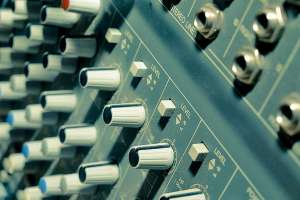
A mixer provides a well-constructed mix that is clear, high-quality, and well-balanced, regardless of how many audio signals are used for the mix.
Having a physical mixer in front of you is also useful because it provides immediate hands-on control over every audio source and every audio send. These mixers allow the user to instantly see the frequencies that are in use, as well as any effects or processing, and immediately make live adjustments.
This means that audio mixers provide a level of audio control over multiple audio signals that cannot be realistically achieved in any other way and in a much simpler interface as well.
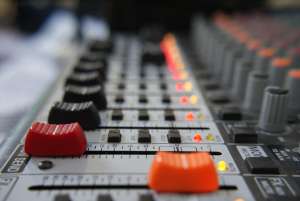
Being able to look down and instantly understand what is happening with your audio is an amazing advantage for both live and recording situations, and being able to instantly alter the signals provides unparalleled control.
Mixers also make it very easy to access equipment and instruments without having to move connections, run cables, or find an audio output source.
This means that using a mixer provides musicians and producers with easy access to their tools and equipment to be used at a moment’s notice, making performances and recording sessions smooth and seamless.
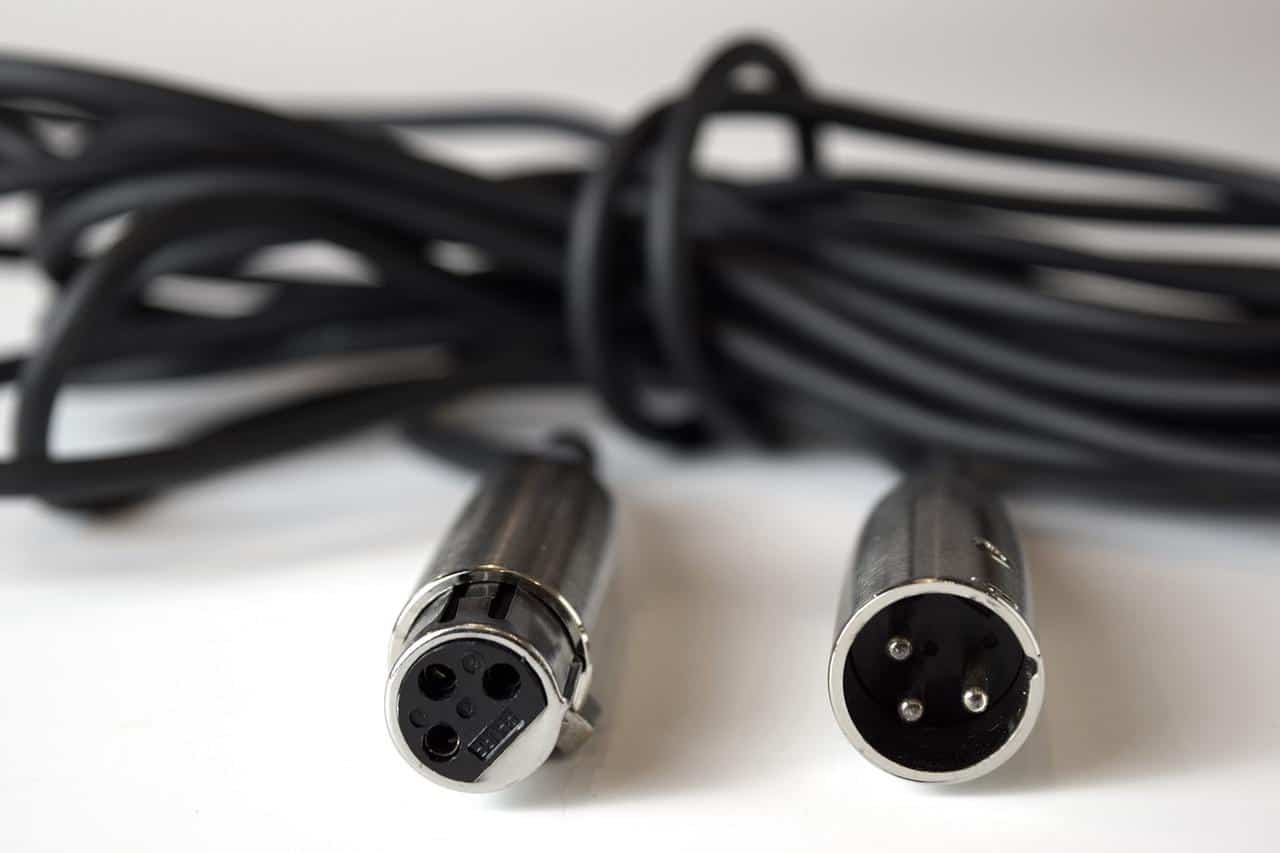
Audio mixers are fundamentally useful and make every aspect of audio production and live to mix infinitely easier and more straightforward. Mixers provide streamlined work processes and a simple interface for controlling audio signals.
Mixers are easy to use and simple to understand, and they make audio production a much more enjoyable process.
Are Audio Mixers Used In Studios?
Audio mixers were originally developed for both live and studio use because these units form a useful hub for multiple audio connections and send while processing the signals along the way.
Many modern studios nowadays do not feature mixers, especially home studios, but the truth is that every studio can benefit from a mixer of some kind, even if it is a virtual mixer.

Some musicians and producers believe that the mixer has been relegated to live performances only, but if you ask any leading audio engineer or producer in the industry, they will tell you that a mixer is an integral part of any studio, regardless of budget, size, or what the studio is used for.
Audio mixers are useful in studios for several reasons. These units can be used as an effective audio hub to bring all of your channels into your interface and DAW for recording, and they can be used to mix your recorded tracks by sending them through the mixer once they are recorded.
Many modern mixers are compatible with DAW programs as well, which means that they can double as a DAW controller, which makes using your DAW while recording far simpler.
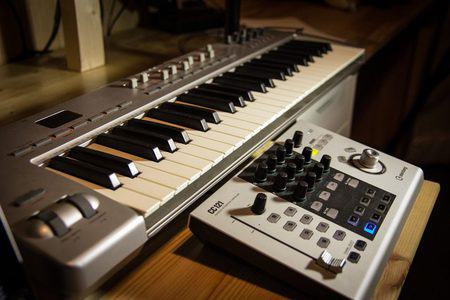
Some mixers even have built-in multi-track recording capabilities as well as the ability to interface between your instruments or audio channels and your computer, making them a perfect one-stop solution for recording studios.
Even simple mixers can be used in studios to control speaker levels, as microphone sends, monitor sends, or even as a simple hub for playing music through. There are an innumerable number of ways that modern mixers are useful in recording studios.
Are Audio Mixers Used Live?
Live use is among the primary purposes of mixing consoles. These units are of paramount importance for live performance of any scale and can take a live performance from difficult to hear and poor-sounding to wonderful clarity and high quality.
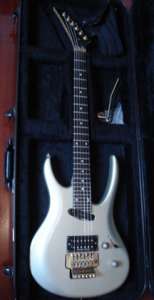
Even very simple mixers are excellent for live use because they balance all of the outputs from audio signals.
This means that if a band is performing live, the sound engineer can balance all of the instrument, vocal, and tack levels appropriately to make the band sound as good and as clear as possible.
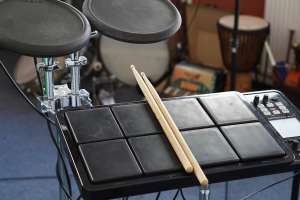
This functionality is combined in modern mixers with the ability to apply live effects to audio output channels as well. This means that all reverbs, delays, low-pass filters, and other effects and tools can be added to the live sound in the room per channel.
Modern mixers can record a live performance, send the audio from the stage to multiple different sources, they can mix live, add effects live, and they can significantly improve the audio quality of a performance very easily.
Mixers also make managing live performance audio channels very simple as well. Every instrument, microphone, or other sound source is routed through the mixer, processed, and sent out to wherever it needs to be, including monitors, speakers, recording stations, or anywhere else it may be needed.
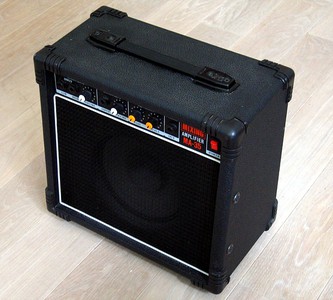
This makes manual mixers wonderfully useful for live audio performances of every kind and makes large live production possible and manageable.
The Main Types of Audio Mixers
We have discussed the importance of mixers in the audio production world, and we have elaborated on some of the major use cases of this type of equipment.
However, if you dig into the world of mixers yourself, you will find that there are several types of mixers available right now, and you may find yourself wondering what these different mixers are for?
There are three main types of mixers in use today for both live and studio purposes. The three main types of mixers are:
- Analog Mixing Consoles
- Digital Mixing Consoles
- Virtual Mixers
There are significant differences between each type of mixer, and they are all typically used in different ways by different types of musicians, producers, and audio engineers.
Analog mixing consoles are pure hardware. These mixers have no digital equipment in them, they have no screens, and they are made from nothing but physical hardware, wires, and connectors.
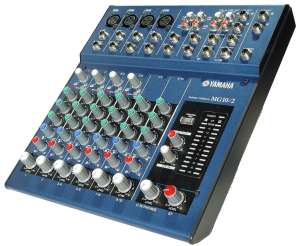
This type of mixer is old school but is generally thought of to be the simplest type of console to use, and if they are made well, they still produce some of the best audio quality possible even in the modern world.
Digital mixers are a modern breed of mixing consoles that combine the control of analog mixers with the features of digital technology.
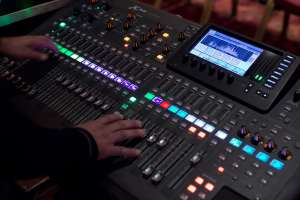
This type of mixer has more functions and a wider range of uses. They are typically smaller, less expensive, and very straightforward to use so long as you understand the features of the console.
Digital mixers have digital hardware, including preamps, drivers, effects, and controls built into them, and the only analog features on them are the controls which take the form of knobs and dials.
There are some combo mixers out there that combine analog and digital technology in impressive synergy, but these mixers are expensive and for specific use cases in general.
The last type of mixer is the virtual mixer. Virtual mixers cannot be called mixing consoles because they have no physical form. This type of mixer is purely digital and exists within a mixing program that is used to control a digital mixing platform or DAW.
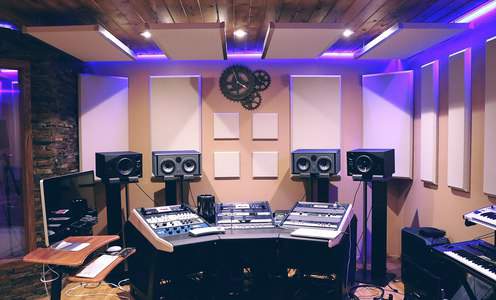
This type of mixer is very functional, has as many effects as you can afford to patch into it, and can be used on mobile devices.
Virtual mixers are the simplest to use, the most affordable, and the most accessible type of mixer. They take up no space, and they can be simply purchased online, downloaded, and installed onto your devices.
This is the modern mixer at its finest, but it does come along with some issues, such as reduced sound quality in some cases.
| Analog Mixing Console | Digital Mixing Console | Virtual Mixer |
|---|---|---|
| Hardware (analog only) | Hardware +Software (analog + digital) | Software (digital only) |
| No screens | Screens | Part of a software |
| Knobs & Dials only | Some knobs & Dials | No knobs or dials |
| Expensive | Affordable | Accessible |
Conclusion
In the end, it is important for all musicians and anyone who works with professional audio to understand the basics of audio mixers and how useful they are. If you are a musician, a producer, or if you want to set up a home recording rig, then learning to use a mixer is an invaluable skill.
Take your time to explore the world of mixers because there is a lot to learn, but the best way to get real experience is to get your hands on one and begin using it however you can. Even a small, inexpensive mixer provides an excellent learning platform.
You can learn about some of the best cheap mixers available here.
You can learn about the difference between an audio interface and a mixer here.
